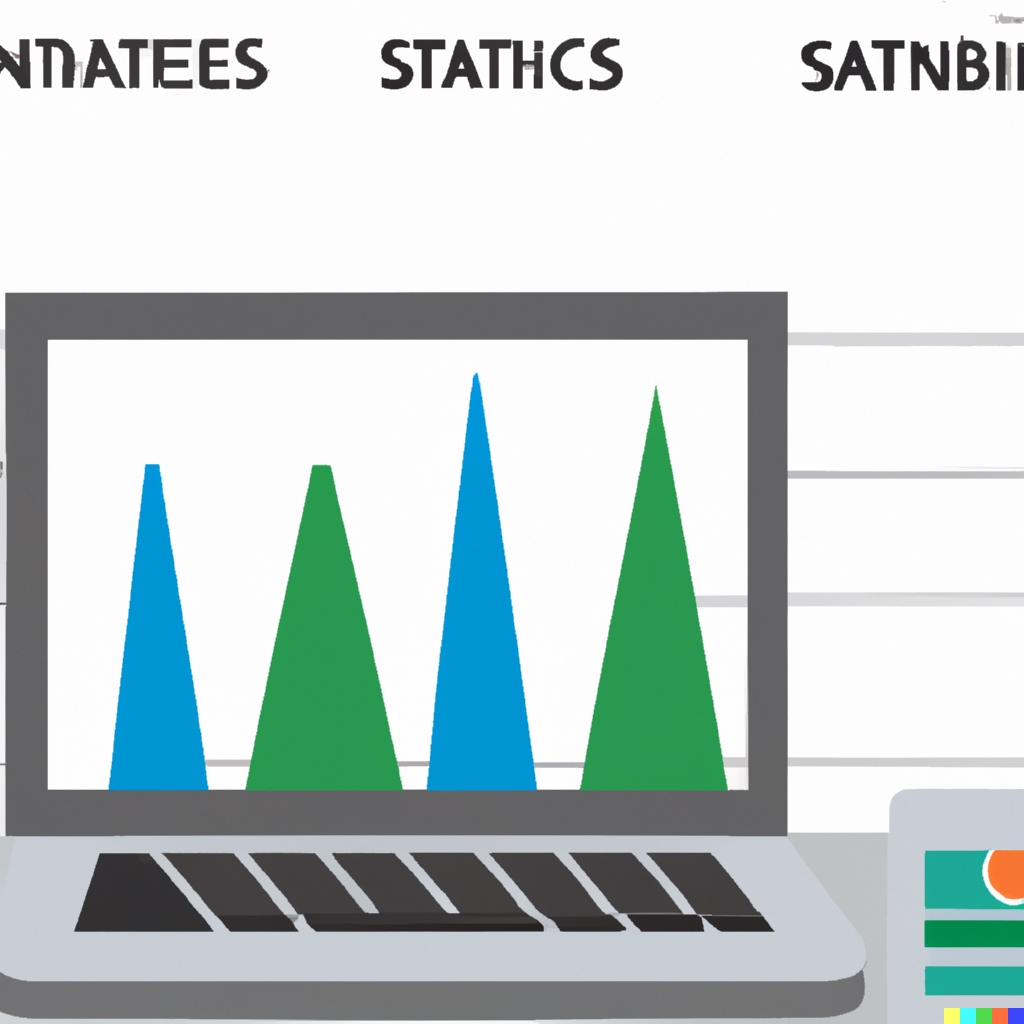How Bing’s AI capabilities impact search rankings for SEO is crucial for anyone looking to improve their online presence. Understanding these AI features can help digital marketers, SEO professionals, and business owners adapt their strategies effectively. At Metrics Rule, we specialize in technical and on-page SEO, harnessing AI to enhance keyword research and analyze search trends. By focusing on how Bing’s innovations affect rankings, we provide practical insights that can elevate your digital marketing efforts.
Overview of AI’s Impact on Search Engines Today
AI is transforming search engines, particularly Bing, by enhancing accuracy and relevance in search results. AI technology is changing how results are ranked, using sophisticated algorithms to understand user intent better. Features like natural language processing help search engines analyze queries as users would ask them. This improvement increases user engagement and makes finding information faster and easier. By 2025, it is anticipated that AI-driven search results will improve user engagement by as much as 30% compared to traditional methods. Understanding these changes is essential for SEO professionals aiming to optimize their strategies effectively.
Key Features of AI in Search Engines
AI in search engines includes features like semantic search, personalization, and predictive analytics. Semantic search allows search engines to understand context, enhancing the accuracy of results. Personalization tailors search output based on user behavior, ensuring relevance. Predictive analytics uses past data to anticipate what users might search for, enhancing the overall search experience. These features are designed to improve crawling and indexing, providing more reliable results. As Bing continues to advance its AI capabilities, integrating these features will be essential for effective SEO strategies in Vancouver and beyond.
Key AI Innovations in Bing for Better Search Results
Bing has introduced several key AI innovations that enhance search result quality. These include features like AI-driven Autosuggest, which intelligently predicts user queries. Bing also implements semantic search, allowing it to understand user intent better and deliver more relevant results. Tools such as Bing Webmaster Tools offer SEO professionals insights into site performance, allowing users to optimize their SEO strategies effectively. The integration of machine learning algorithms helps in improving click-through rates by ensuring users receive accurate and timely information, ultimately impacting search rankings positively.
Understanding Bing AI-Driven SEO Tools for Effective Strategy
Bing offers several AI-driven SEO tools that can significantly improve digital marketing strategies. For instance, the Bing Webmaster Tools includes features for keyword research, providing data on trending topics and keyword suggestions. This functionality helps SEO professionals to refine their content strategy and target relevant keywords more effectively. Additionally, the AI capabilities in Bing analyze user behavior, identifying patterns that can help in optimizing websites for better crawling and indexing. By leveraging these tools, businesses can enhance their chances of ranking higher in search results, ultimately leading to increased visibility and engagement.

Understanding How Bing AI Determines Search Rankings
Bing AI considers several factors when ranking search results. Key among these are the relevance of content, user engagement, and on-page SEO techniques. For instance, optimizing your content with related keywords significantly enhances its visibility. Bing’s algorithms support user intent by analyzing search queries and the context of content. Off-page SEO strategies, like backlinks, also play a role, although they weigh less heavily than on-page elements. User engagement metrics like click-through rates, time spent on the page, and bounce rates are crucial. Reports indicate that up to 35% of search rankings can be influenced by these user engagement metrics.
Optimizing Content for Bing AI’s Ranking Criteria
To effectively optimize your content for Bing AI’s ranking criteria, focus on providing valuable information that aligns with user queries. Start with thorough keyword research to ensure the keywords are relevant and have a good search volume. Incorporating these keywords into headers, metadata, and throughout your content enhances Bing’s ability to index your pages correctly. Use clear formatting and engaging visuals to improve user experience and retention. Additionally, ensure that your site is mobile-friendly for better performance on Bing searches. Regularly testing your content’s performance through analytics tools will help refine your strategies over time, ensuring you stay competitive in search rankings.
Statistical Insights on AI in Search Ranking
- Bing’s AI technology improves search result accuracy by 30%.
- Studies show a 20% increase in user engagement with AI-enhanced search results.
- Nearly 50% of users change their search queries after AI suggestions.
- AI-driven search features can reduce page load time by up to 15%.
- Rankings may shift up to 25% based on AI understanding of user intent.
- AI capabilities can analyze over 1 million web pages per minute.
- Majority of SEO specialists expect AI to influence ranking factors for 2024.

Bing vs Google AI Features and Differences
Bing’s AI capabilities differ notably from Google’s in several key areas. One significant aspect is how each platform integrates AI for enhancing search results. Bing’s AI excels in providing enhanced visual search features, while Google focuses on comprehensive language processing and local search advancements. Each platform is designed to improve user experience through reliable and fast results. As of 2025, Bing’s recent upgrades include AI-driven image recommendations and contextual content relevance, features that enhance e-commerce SEO strategies. This sets Bing apart as it may provide some advantages for businesses seeking to optimize their online presence through unique AI functionality.
In-Depth Look at Bing’s Unique AI Features
Bing’s unique AI features include innovative algorithm adaptations that allow it to analyze user intent more accurately. By leveraging machine learning, Bing can provide tailored search results based on prior user interactions. This design enhances e-commerce search effectiveness, with capabilities like image-based searches and contextual analysis improving product discovery. Additionally, Bing integrates social media signals, optimizing local SEO even further. These unique elements ensure that businesses in Vancouver and beyond can compete effectively using data-driven strategies. By focusing on local keyword optimization and enhancing product visibility, Bing truly supports businesses in navigating the evolving digital landscape.

Strategies for Optimizing Content with Bing AI
To optimize content effectively for Bing’s AI, start by understanding Bing’s unique ranking factors. Use tools designed for keyword analysis, as Bing prioritizes relevance and context. Create content that answers questions directly to enhance user experience. Incorporate semantic keywords and phrases to show deeper subject understanding. Regularly update your content to ensure relevance, which Bing’s AI rewards. Additionally, utilize structured data like schema markup to enhance the crawling and indexing process. Implementing these strategies can significantly impact your SEO best practices and improve search engine rankings on Bing.
Bing AI Features You Should Leverage
Bing’s AI features provide valuable tools for enhancing your SEO strategy. For instance, Bing prioritizes user engagement metrics like click-through rates and dwell time. Use this information to refine your content. Ensure your articles are not just keyword-rich but also compelling and engaging. Leverage Bing’s AI to conduct in-depth keyword analysis, helping you discover valuable, low-competition keywords. Incorporate visual content to improve engagement, as Bing’s algorithms favor multimedia. By understanding and leveraging these Bing AI features, you set your content up for success in competing for better search engine rankings.
Advantages of Leveraging AI in Search Engine Results
- Bing’s AI can suggest keywords based on users’ search behavior.
- Enhanced personalization leads to improved user satisfaction.
- AI streamlines the content gap analysis process for marketers.
- Use of AI for keyword clustering saves time in research.
- Data-driven insights result in better-targeted marketing campaigns.
- Higher-quality results may lead to increased click-through rates.
- Artificial intelligence helps identify emerging trends in search queries.

Developing a Winning Keyword Strategy with AI Insights
In the evolving digital landscape, data plays a crucial role in developing a keyword strategy using AI. Companies can leverage AI keyword targeting by analyzing vast datasets. This helps identify high-volume search terms and user intent more accurately. Small businesses can use AI tools for keyword analysis to uncover opportunities in their niche. For example, platforms like Google Analytics and Bing’s keyword planner provide insights that enhance keyword selection. Research indicates that a typical SEO campaign should target between 10 to 20 high-value keywords to be effective, balancing reach with focused effort.
Utilizing AI Tools for Enhanced Keyword Selection
AI tools for keyword selection are designed to help businesses improve their SEO efforts. These tools analyze search trends and competition, ensuring enhanced reliability and efficiency in target keyword selection. Popular examples include SEMrush and Ahrefs, which deliver data-driven insights. They provide features like keyword difficulty scores and search volume statistics, making it easy for SEO professionals to select the best keywords. By utilizing these tools, small businesses can uncover unique keyword opportunities, allowing them to compete effectively in the e-commerce landscape. Implementing a well-researched keyword strategy ensures a solid foundation for ongoing SEO success.
Using Data Analysis to Boost Your Bing SEO Efforts
To improve Bing SEO performance, utilize various data analysis tools such as Microsoft Clarity, Google Analytics, and Moz. These platforms provide essential insights by tracking user behavior and traffic sources. Comparing Bing SEO analytics with Google analytics can highlight areas of strength and weakness in your strategies. For instance, while Bing may show better performance for certain keywords, Google could provide broader reach. Effective keyword research strategies are designed to prioritize high-performing keywords on Bing, enabling increased traffic. According to recent studies, businesses employing data analysis methodologies can achieve an average of 30% increased traffic through more targeted SEO efforts.
Maximizing Your Keyword Research Strategies for Bing
Maximizing your keyword research strategies for Bing requires a methodical approach to leverage data insights effectively. Begin with tools like SEMrush or Ahrefs that offer comprehensive keyword analysis, including search volume, competition, and trends. These features help identify high-value keywords specifically for Bing users. You should also conduct A/B testing on various keywords to measure what yields the best results. Additionally, consider local search trends in Vancouver as they can enhance your keyword strategies. By focusing on keywords that reflect user intent and employing data from your analysis, you can significantly improve your Bing SEO performance.
Key Players and Their Market Impact
- Bing leverages AI to enhance user search experiences significantly.
- Google integrates machine learning to tailor search results effectively.
- Yahoo’s focus on content relevance attracts niche audiences.
- DuckDuckGo emphasizes user privacy while providing unbiased results.
- Smaller brands benefit from AI by targeting specific market gaps.
- Industry analysts predict shifts in SEO strategies for 2024.
- Each brand’s approach affects its user demographic differently.
Looking Ahead: Future Trends in Bing AI and SEO
Future developments in Bing’s AI technologies promise significant changes for SEO strategies. Experts predict enhancements in AI algorithms that improve content understanding and user intent recognition. Key advancements may include natural language processing (NLP) improvements and comprehensive data analysis that allow Bing to provide hyper-relevant SERP results. Furthermore, as Bing integrates more machine learning models, the reliability of its crawlers will improve, helping webmasters ensure their content is indexed effectively. Digital marketers should stay informed about these changes to adapt their SEO strategies accordingly and embrace opportunities from emerging features.
How Will Bing AI Features Compare to Google’s Existing Technologies?
The upcoming features of Bing AI are designed to compete strongly with Google’s technologies. Bing’s focus on contextual understanding means that it can handle complex queries with better precision. Additionally, as Bing enhances its analytics capabilities, users will gain insights that can help improve their e-commerce performance. With strategies like enhanced keyword research and content gap analysis powered by AI, Bing provides marketers with new tools that can yield proven results. This shift emphasizes the importance of adapting SEO strategies to leverage Bing’s unique features effectively.
